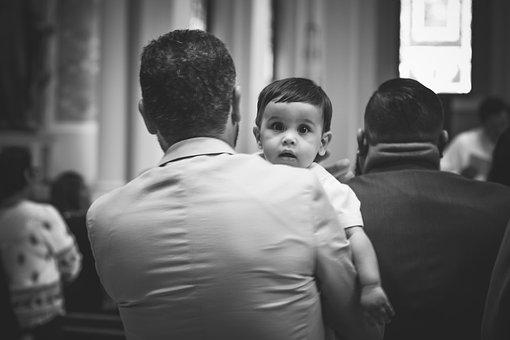When Life Isn’t Fair – and What God Should Do About It

We traveled to Ohio for the funeral of Dave’s cousin Myron. Uncle Bert, Myron’s father, had seen more death in his life than was fair. He lost his first wife and an infant son in childbirth and was left with one son and one daughter. Now this son was gone.
We came inside and met Uncle Bert, who turned to his brother Monroe (Pop Slabach) and said, “I’m not bitter, Monroe; but you have five sons and now I have none.”
I will never forget the look of sadness and acceptance on Uncle Bert’s face that day. His son’s work-related tragedy left a widow with two small children. He had every human reason to become bitter, but he didn’t.
When life isn’t fair, we have a choice of two things we can do in response.
There’s one thing God can do.
The first thing we can do is look around and find someone whose life is even less fair than ours – and then start counting our blessings. We can recognize that, for life to be fair, some of the blessings we experience need to go, for there are many others in this world who are not as blessed as we are. We can count the blessings we have, instead of yearning for what we wish we had.
Or (the second thing) we can do is check off the unfair things that have happened to us and start to wallow in the unfairness of life – and of God.
After all, when we try so hard to live for Jesus, when we love Jesus, when we try to do things right and live the way He asks us to, shouldn’t life be fair?!
 Why is it that my friends have never experienced a miscarriage – but I have?
Why is it that my friends have never experienced a miscarriage – but I have?
Why is it that nobody else’s church has struggles – but mine does?
Why is it that everybody else’s husband understands her completely and caters to her needs but mine doesn’t?

Why is it that people who are living in blatant sin continue to experience blessings of health, children, or finances when I don’t?
Why is it that she continues to eat desserts, but can lose weight so easily while I follow a healthy diet and lose ounces instead of pounds?

Why has my family experienced more grief and loss than others?
Why is it that a friend’s children all live in the same community while mine are scattered in many states?

Why is it that others, who don’t tithe, continue to receive financial gain while we tithe regularly and are scraping bottom paycheck to paycheck?
Why is it that my sister gets to live close to home where family and friends abound, but I’m stuck out in some far corner of the earth  because of my husband’s job or ministry?
because of my husband’s job or ministry?
Why does my child have to be the one to suffer from a diagnosis that no mother should ever have to face?

Why is it that, just when we think we’re getting ahead financially, something unforeseen happens and everything we’ve saved has to go toward that catastrophe?

The questions are not new. People have been asking these questions the world over for generations. The names might change, but circumstances and events replay themselves year after year, and each time the questions arise.
We are really no different than others. Just like those who have been here hundreds of years before us, we ask the same question: WHY?
Why? Why? Why?
What should God do about it?
First, we need to recognize that God sees and knows it all. He is not blindsided by anything that happens to you – or to me.
He will, however, continue to be God. That is what He should do about life not being fair.
When I struggle with these “why” questions, I turn to the story of a man called Job, the man who lost all his children, all his cattle, and all his possessions – except for his complaining wife. Nothing made sense to Job, and he voiced his feelings to God.
What God said to Job, He says to us:
Where were you when I built the foundations of the world?
Where were you when I hung the planets and the stars, when I numbered and named each one?
Do you know the voice of the gazelle, do you know where the hinds’ feet go?
Have you heard the noise of the waterfall from underneath?
Who said life has to be fair?
Who says all your dreams must come true?
Who says you don’t deserve to suffer or to experience loss?
Oh, my. When I read these words, I am humbled at who I am and what I am expecting God to be just for me.
When life isn’t fair (and especially when the consequences of what happens to us has nothing to do with choices we have made), there is one thing we can do: let God be God.
If I am but clay in the Potter’s hands, then He chooses the design and shape of my life. He chooses what pressure and turning must happen for me to become the vessel He needs. He chooses not to throw away the clay (that’s me) that’s been marred by sin. If my desire is to be used by God in His Kingdom, then I must cooperate with Him as He purges out the self in me to make me more like Him.
He might not send the catastrophe (look at Job), but He can use those events to chip away at the rough edges of our lives if we will cooperate with Him.
From our human understanding, life just is not fair. It really isn’t. It just is not fair! God never promised that it would be.
He only asks that we recognize Who He really is, and that we allow Him to be God.
Allowing God to be God means that I —
- choose to accept what has happened without becoming bitter
- choose to acknowledge God’s power even when He didn’t do what I think He should
- choose to affirm my belief that He will not allow others to thwart His plan for me
- choose to believe that God can take chaos and catastrophe and turn them into something beautiful – in His time.
Because He is God, He will keep on being Who He is. In my brokenness and weakness, I need to allow Him to continue to be Who He is. Someday – when Heaven’s doors open – it will make sense, and it will be okay.








Good read for me today Gert, Just what I needed!